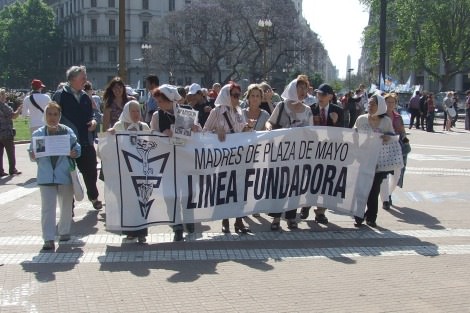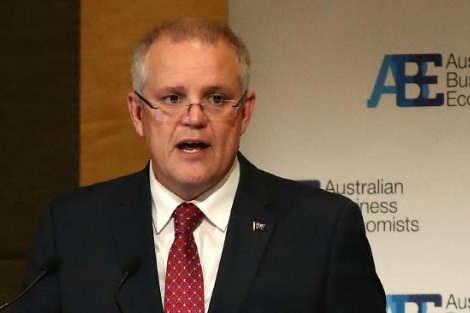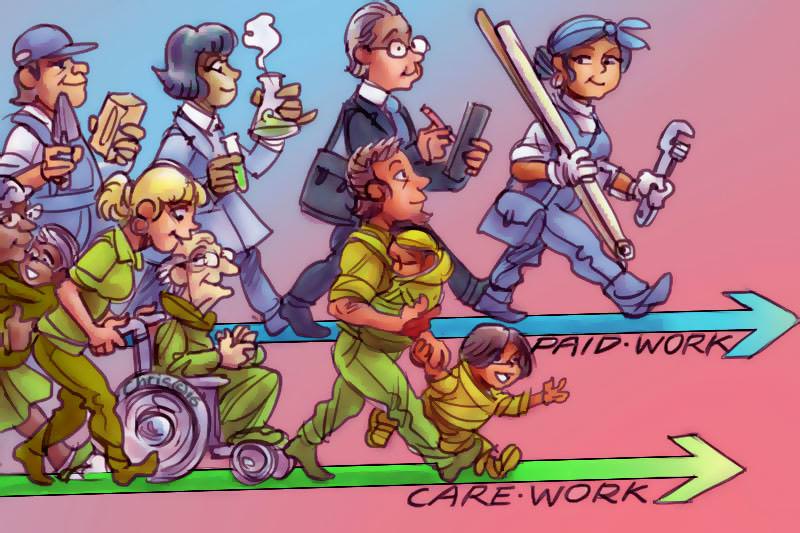Keywords: Independence
There are more than 200 results, only the first 200 are displayed here.
-

INTERNATIONAL
- Antonio Castillo
- 12 May 2017
It began 40 years ago on an autumn day, when 14 mothers gathered in Buenos Aires' Plaza de Mayo, in the city's central square. They were seeking an audience with the military authorities. They wanted to ask the whereabouts of their abducted children. 'Where are our children?' was a question that metamorphosed into a brave act of political resistance and defiance against the brutal 1976-1983 Argentinean military dictatorship. They have been performing this act of defiance ever since.
READ MORE 
-

RELIGION
- Frank Brennan
- 08 May 2017
1 Comment
Our Church is presently a strained, outdated social institution with an exclusively male hierarchy and clergy. But it is also the privileged locus for us to be called to the banquet of the Lord sharing theology and sacrament which have sustained the hearts and minds of similar pilgrims for two millennia. Thank God for Pope Francis who is showing us the way, helping us to find meaning in our changing and chaotic world, putting a fresh spring in the step of all those Catholics holding in tension the prophetic and the practical, the theological and the humanist, the tradition and the contemporary reality.
READ MORE
-

AUSTRALIA
- Frank Brennan
- 07 May 2017
7 Comments
Part of the cost of the double dissolution election last July has been the creation of a Senate with the largest, most diverse group of crossbenchers ever. This will make the passage of any new contested Budget measures difficult, particularly given the Prime Minister’s vulnerability on his right flank, and the Labor Party's propensity to mimic the Opposition tactics adopted previously by Tony Abbott. The government needs to create a clear narrative as to how it will achieve equitable and sustainable growth through this Budget.
READ MORE 
-

INTERNATIONAL
- Brian Matthews
- 04 May 2017
4 Comments
For all his demonstrable popularity, Reagan was a divisive figure. His Hollywood and TV show provenance were regarded with enduring suspicion by some, and many doubted his capacity to deal with the dangerous complexities of Cold War politics. Some even considered him a rogue. He was well into enjoying his overwhelmingly approved second term when, unnoticed by the President, his administration or anyone outside the city of Eugene, Oregon, I arrived in the United States.
READ MORE 
-

ENVIRONMENT
- Ketan Joshi
- 06 April 2017
1 Comment
A 2015 cartoon by Bill Leak depicts an Indian family squatting, smashing solar panels to pieces. A woman chews on a shattered piece of glass, and a man attempts to smear mango chutney onto glistening shards. The initial reaction centred around the racist depictions of Indians. But it also represents a broader and worrisome attitude towards global energy politics, that assumes idiocy in developing countries, combined with a push to burden them with the dangerous wares of a dying industry.
READ MORE 
-

INTERNATIONAL
- Fatima Measham
- 30 March 2017
5 Comments
This week, Trump signed the Energy Independence executive order, which amounts to open slather for oil drilling and coal companies. It turns off policy settings made under Obama, including a moratorium on coal leases on federal land and methane emissions limits in oil and gas production. It's a colossal setback, though it could play well in coal country. While Trump may declare he is '(cancelling) job-killing regulations', people will eventually find it is not emissions-related regulation that is killing jobs.
READ MORE 
-

AUSTRALIA
- Ann Deslandes
- 06 February 2017
7 Comments
The recent viral footage of 'alt-right' spokesperson Richard Spencer taking a punch to the chops caused considerable debate. There is no doubting the moral clarity that non-violent resistance achieved in the civil rights movement led by Martin Luther King and the Indian independence movement led by Mahatma Gandhi, and the real result of justice for African American and Indian people. When it comes to the odd individual act of public pushing and shoving, though, asking 'Is it okay?' is a red herring.
READ MORE 
-

INTERNATIONAL
- Antonio Castillo
- 24 January 2017
4 Comments
One indigenous language vanishes every two weeks, and Quechua, once the tongue of Peru's mighty Inca Empire, was one of those heading to extinction. That is, until last December, when the first ever Quechua language television news service went to air on the platforms of TV Peru and National Radio, the public broadcaster. According to one presenter it is a 'space that breaks all the paradigms of discrimination and inequality toward those who are speakers of indigenous languages'.
READ MORE 
-

INTERNATIONAL
- Julie Davies
- 24 January 2017
11 Comments
I can understand the Trump phenomenon. Hard-working Americans and many Australians are blaming various minorities as responsible for their decline. They are being blinded to the real culprits: our own governments and their wealthy backers. Juvenal's 'bread and circuses', designed to keep the people docile and distracted in Ancient Rome, have been updated to Maccas and manufactured news. And hatred. Are we so easily manipulated? Is the American model the future Australia wants for itself?
READ MORE 
-

AUSTRALIA
- Esther Anatolitis
- 16 January 2017
3 Comments
2017 is set to be a momentous year for the arts in Australia. On 1 November we commemorate 50 years since Harold Holt announced the creation of an independent body to champion 'the free play of our cultural interests and enthusiasms at all levels' — an announcement that meant bringing together disparate focuses and isolated funds with a national vision. Yet today's Australia Council faces an uncertain future, and the free play of our cultural interests is jeopardised by that uncertainty.
READ MORE 
-

AUSTRALIA
- Kate Galloway
- 25 November 2016
2 Comments
Civil society requires care work. All of us, at various stages of our lives, will be dependent on others for our daily needs. Most of us will likewise care for others at some point. The challenge is how to allocate caring responsibilities throughout society, while allowing also for the paid work that secures economic independence. At the moment the tacit expectation that women will do unpaid care work - and that men (theoretically) are unburdened by care work - contributes to economic inequality.
READ MORE
-

RELIGION
Two days after his election, the communications team of General Congregation 36 sat down with Father General Arturo Sosa to discuss his life and thought. The conversation introduces the new Superior General in a way that is more personal, to Jesuits and the wider Ignatian family around the world.
READ MORE